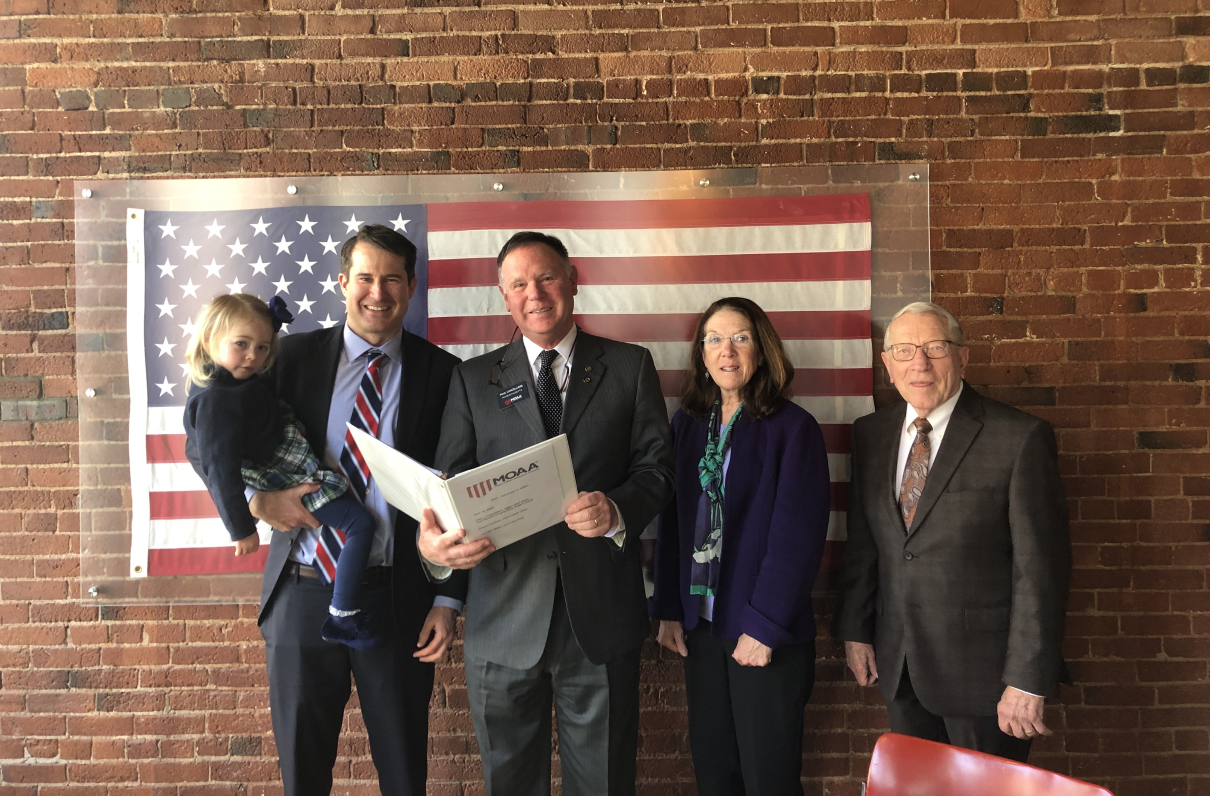Finding accurate information on legislative issues affecting you can be daunting when so much material can be accessed in just a few keystrokes. Reliable sources like MOAA can help you stay up to speed, which is especially important if you are looking to get involved in the legislative process.
A leading voice on compensation and benefits for the uniformed services and a recognized “Top Lobbyist” for each of the last 15 years, MOAA can help navigate a busy and competitive system: Of the 13,200 bills introduced during each two-year session of Congress, only about 2% pass both the House of Representatives and the Senate, and are signed into law by the president.
Remaining bills are stuck waiting for a vote, or fail a vote, or are lucky enough to be copied and incorporated into a larger “omnibus” bill. These omnibus bills include the language of multiple smaller bills, often focused on one issue area, in the hopes of having enough support to pass Congress. The Honoring Our PACT Act is an example of an omnibus bill, combining the proposals of many smaller bills to target comprehensive toxic exposure reforms. The annual National Defense Authorization Act (NDAA) also combines many existing bills into a single legislative vehicle.
[RELATED: Visit MOAA’s Legislative Action Center]
It can be difficult to track which bills have become which parts of which omnibus legislation. It can be even more complicated if a bill doesn’t have an easy-to-remember title, such as the Honoring Our PACT Act or the Major Richard Star Act; bills receive numbers based on order of introduction in either the House or Senate (H.R. 3967 or S. 344, for instance), and they receive new numbers if they’re reintroduced in subsequent sessions.
The official website for Congress, Congress.gov, provides regular updates on proposed legislation. If you have a particular bill you are passionate about, you can search for the bill number or title of the bill to find out its status in the legislative process, whether it is still in a committee for amending and deliberation or waiting for a full vote in either the House or the Senate. You can also find out which lawmakers have co-sponsored the bill of interest.
MOAA’s Advocacy
MOAA plays an active role in military personnel matters, especially proposed legislation and administration policies affecting the career force, retirees, and veterans of the eight uniformed services. For more than 90 years, MOAA’s advocacy efforts with Congress have led to real results – pay and benefits protected from budget-driven threats, continued access to quality medical care, and countless other areas of concern to our members, our military, and the wider uniformed services and veteran communities.
MOAA’s expert staff advocates have not acted alone in these efforts. MOAA often collaborates with other like-minded organizations as part of The Military Coalition, a group of military and veterans service organizations representing nearly 5.5 million members of the greater uniformed services community. Most important, however, are the grassroots efforts of MOAA’s 350,000-plus members who make their voices heard by contacting their representing lawmakers via MOAA’s Legislative Action Center, by participating in our annual signature advocacy event, and via local efforts through MOAA’s state councils and local chapters.
To get involved and support MOAA’s advocacy mission, it’s important to know what issues MOAA has prioritized. While MOAA always advocates for the preservation and improvement of the earned compensation and benefits of our uniformed services community, we choose key legislative issues to push for at the start of each year. Each of these goals is chosen based on the legislative landscape and the momentum gained on the issues over previous years.
MOAA’s advocacy team constantly reviews and assesses new legislation that may impact the pay, benefits, and support programs of the uniformed services, veteran communities, and their families. Our process in endorsing or opposing legislation is deliberative; MOAA will not support or oppose any legislation without thoroughly reviewing the potential effects, positive or negative. MOAA members can click here to see a regularly updated list of MOAA-supported legislation.
Through our monthly Military Officer magazine, The MOAA Newsletter, and the Advocacy News page at MOAA.org, members can keep abreast of our continued work and updates of ongoing advocacy issues.
As constituents, you provide the most powerful voices for swaying legislators on issues affecting the military and veteran communities. Legislators often need to hear firsthand how reductions to earned benefits affect their constituents, which is why letters, phone calls, and emails to your elected officials are so impactful.
You can engage with your members of Congress by sending pre-written letters through MOAA’s Legislative Action Center, or by using MOAA’s Capital Hotline – 866-272-MOAA (6622), a toll-free line to the U.S. Capitol switchboard – to connect with your legislators' offices to either voice your concerns or set up virtual or in-person meetings with their D.C. and local district offices.
More Members Mean More Influence Over Retirement Pay, Health Care, and Family Programs
Get involved and make sure your interests are addressed. Because the larger our voice is, the greater our impact will be.

